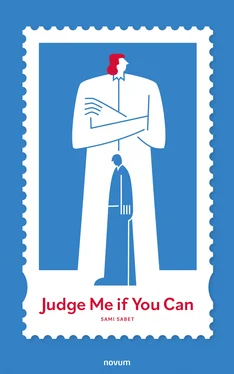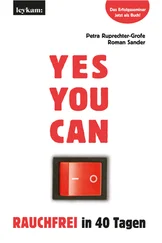Several weeks later, we were taken, along with the normal group of friends, on yet another trip. We travelled to what seemed to be a barren land, depleted of any greenery. There were two concrete skeletons of buildings which, when completed, would form my father’s new hospital, to be called “Amal”, based on my mother’s name, and our house. The villa, as they called it, was going to be enormous, made up of two floors surrounded by a very large garden.
The grown-ups left us to play while they surveyed the land and structures that had already started to form. We played, climbing onto the unfinished buildings and dirt mounds, had our pictures taken and had a picnic. My father had drawings of the buildings unfolded on a small table. The inside layout of the hospital showed it to be huge, comprising three stories and made up of three sections, forming a U shape whose sides had been pulled apart. There would be an area of plants, roses and trees all around it. The villa would have had four bedrooms with three bathrooms, three reception rooms, a kitchen and servants’ quarters. It too was to have an enormous, walled garden surrounding it. We thoroughly enjoyed ourselves but, sadly, we never saw this project completed.
The Early Years
In 1962, my mother, brother, sister and I travelled to Egypt for what I had thought to be our annual holiday. However, it was earlier than usual, and my mother was pregnant. We stayed at my maternal grandparents’ flat for about three weeks, then moved to a new one, a couple of miles away. It was on the seventh floor of a block situated on the corner of two main streets, opposite Heliopolis hospital. From our large, L-shaped balcony, we could see a good deal of the suburb Heliopolis. To the front was a very wide road with two carriageways for cars and buses, separated by pavements enclosing tracks on which the metro travelled. On the left side was an equally wide road divided by a tree-lined garden running along the length of it. Beneath us on our block were a grocer, fruit and vegetable shop and a couple of offices.
A few days before the end of May, my grandmother came to stay with us. Two days later, she took my mother to the hospital across the road from where we lived. On the first of June, my second brother, and youngest sibling, Sirkaak, arrived, and became the only sibling not to be delivered at home, and by my father.
A scuffle between Saudi Arabia and its neighbour, Yemen, had broken out. Egypt had sided with Yemen, resulting in tension between it and Saudi. Despite this fallout, the Saudis asked my father to stay, offering him citizenship and the position of Minister of Health. He felt strongly about the situation and the unfairness of the Saudi Government towards the Yemeni people. His strong beliefs forced him to reject the offer and resign. Three months later, he gathered our belongings and returned to Cairo for good.
My mother had to hire a maid to help her with household duties and look after my baby brother and sister. Semita, my older brother, and I were both sent to the local Primary School, about half a mile away, on the same side of the road as our flat. We had returned to a much busier, more cosmopolitan environment to that of Taif. Our 8-storey block of flats, along with the shops underneath, dwarfed any building in Saudi, and the metro line, which covered the whole of the Heliopolis suburb, was only one of many all over Cairo.
Our neighbourhood was fairly new, with several blocks of flats being built further to the east of us. These numerous building sites offered brilliant opportunities for me to explore. Apart from the metro and buses, there were very few cars on the street, though it might not have appeared as such compared to Taif, due to the enormity of Cairo.
When we were in Saudi Arabia, I was very fond of Ali, who took good care of me and played with us. When we left, I was startled that he had bought me a pen as a present and nothing for my siblings. I guess this fond memory of him drew me to the builders and security guards working on the building sites. Some of them displayed his mannerisms and had similar accents, encouraging me to visit, talk and drink tea with them. They told me stories about where they came from, the families they left behind, and how they lived. Most of them had come from Upper Egypt to find work, as there were no jobs in their villages, and they needed to make a living. They had to leave their wives and children back home, because they could not afford to bring them to Cairo, or because the children were at school and could not relocate. Living on site and working every day, they barely spent any money in Cairo, sending it to their families back home instead.
At school, I made a lot of friends and enjoyed many adventures, challenges, and a great deal of fun. I liked my teachers and felt that they appreciated my hard work and ability to acquire and assimilate information quickly. Although the school was within walking distance from home, we enjoyed riding on the metro. Neither myself, my brother, nor my friends were given money to buy a ticket. Instead, we would jump on the back bumper of the train, hang on for dear life, and get off at the stop opposite the school. More often, however, we would get into a carriage and, when the conductor approached, we would move away from him, until the nearest stop, where we would jump off. It was great fun, although it was for a very short distance. On our return from school, we walked, talked and frolicked with our friends.
On some evenings and during weekends, we would be taken to my maternal grandparents’ flat to stay. My grandfather, a short, stocky man with glasses, was a headmaster of a large, well respected private school. My grandmother, who was taller, did not work and spent a great deal of time with us. I loved being with them in their massive flat with, at the front, an office with a guest reception room and balcony on one side, and their bedroom and another balcony on the other. In the middle section was a large reception room connecting these rooms, together with a big dining room and a wide, long, corridor, which in turn led to a kitchen, cloakroom, two further bedrooms and a bathroom. One of the bedrooms had its own balcony, whilst the other had two – one on either side. It was the only flat on the fourth floor of the building.
I used to walk around, admiring all the antique furniture and ornaments in the reception areas. An archway separated the lounge and dining room. Net curtains, acting as a partition, gave me a mysterious anticipation when walking from one room into the other. I loved the brass and, even more so, the bronze ornaments. One of my favourites was of a man standing in a chariot, holding a raised whip with his right hand and, in his left, the reins, connected to two horses with heads held high, appearing to be charging at speed. The whole sculpture was mounted on a rectangular, solid piece of marble, measuring approximately 50cm by 30cm.
One item, which made a huge and lasting impression on me, was a grandfather clock. It rested against a wall halfway down the corridor. I used to sleep in the room on the other side of that wall, and could hear its ‘tick-tock’ sounds and chimes all night. It had become a comforting sound, which has stayed with me throughout all these years.
One day in May 1963, we were at the flat with other members of the family. My grandmother was in bed, though it was in the afternoon, and members of the family were standing in groups, talking to each other. I went into the study and heard my father speaking to my grandfather and a couple of other aunts and uncles. He said something like, “I am afraid there is nothing that can be done…it could be a matter of minutes…”
The women started screaming and hurriedly walked into my grandmother’s room. As they stood around the bed, I walked to the bottom of it and stood there, at her feet. Looking around, trying to understand what was happening, I saw my mother and aunt standing next to her, with my father’s sisters and mother on the other side. She was lying on her back with her eyes closed and everyone looked sad and tearful. People would come into the bedroom, look at her and, with a sorrowful expression, walk out again. I thought, “Why, with all this noise around her, did she not wake up and open her eyes?” It felt as if something was wrong and that I had to stay to see what would happen.
Читать дальше












